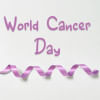Some respite for cancer patients

Manufacturers of cancer medicines will be able to sell the lifesaving drugs at reasonable prices after the National Board of Revenue (NBR) extended duty-free import benefits to 100 more raw materials used to make such products.
If the prices of the expensive drugs remain unchanged at a time when almost all goods and services in Bangladesh have become costlier, this will come as a huge relief for the rising number of cancer patients.
The revenue authority has been offering the concessionary duty benefit for the import of ingredients of cancer drugs since 2015 in order to encourage domestic production and reduce the cost of medicines.
It expanded the list of ingredients in 2021 and the latest exemption comes in the proposed budgetary measures placed by Finance Minister AHM Mustafa Kamal for the next fiscal year of 2023-24.
"The number of cancer patients in Bangladesh is increasing. Since the prices of medicines needed to treat the disease are usually high, we have removed the customs duty and VAT so that people can get the drugs at lower prices," said a senior official of the NBR.
Pharmaceutical manufacturers welcomed the move.
"The patients of our country will be benefited as they will get cancer medicines at the previous rates as manufacturers will not need to increase the price," said Abdul Muktadir, senior vice-president of the Bangladesh Association of Pharmaceutical Industries.
The chairman and managing director of Incepta Pharmaceuticals Ltd said since the government has maintained the duty exemption, it will help keep the prices of oncology products unchanged.
In 2021, the government extended the preferential import duty and VAT benefit within the price and quantity limits specified by the Directorate General of Drug Administration.
According to a World Health Organisation report, there are around 15 lakh cancer patients in Bangladesh with 150,000 dying each year. Every year two lakh people are attacked by cancer.
The Global Cancer Observatory estimates that 109,000 people died of cancer in Bangladesh in 2020. It was 108,137 in 2018 and 91,300 in 2012.
Mohammad Mujahidul Islam, executive director for marketing and sales at Eskayef Pharmaceuticals Ltd, said, "The government's continued preferential duty and VAT facility is definitely good news for oncology patients and drug manufacturers."
"The number of cancer patients is increasing in Bangladesh. Because of the government's support, their treatment cost will not increase."
Eskayef's Oncology Manufacturing Facility started its journey in 2018 and got approval from the European Union after meeting good manufacturing practice criteria in 2020, joining a few companies in Asia that are allowed to sell products in the bloc.
"Those who make cancer drugs in Bangladesh will not bear any extra cost unless the price of raw materials goes up in the international market. This means local companies will be able to sell cancer medicines at reasonable prices," Islam noted.
He thanked the government for its continued support aimed at developing the pharmaceuticals industry.
"As a result, manufacturers will be able continuously improve the quality of medicines. At the same time, cancer drugs produced in Bangladesh can be priced competitively for the export market. So, the policy support will boost export earnings as well."
Monjurul Alam, director for global business development of Beacon Pharmaceuticals Limited, the pioneer in manufacturing oncology drugs in the country, said: "Our patients are so fortunate that they are getting all the latest drugs at affordable prices."
According to him, the government has withdrawn the import tax on raw materials needed to produce diabetic drugs to make the products easily accessible.
Local cancer drug sales amounted to about Tk 800 crore last year and the demand is growing by 15 per cent on average annually, industry people say.
Alam thinks patients suffering from kidney and heart diseases should also get the access to medicines at lower prices.
Pharmaceutical companies such as Beacon, Eskayef, Renata, Incepta, Healthcare, and Techno Pharma manufacture more than 110 types of oncology drugs, meeting 80 per cent of the local demand. It was around 50 per cent in 2015.
The rising local production means a lower import of lifesaving medications, cuts import reliance, keeps the supply chain smooth, and avoids price fluctuations to a large extent.
Although local companies manufacture 99 per cent of the oncology drugs consumed by patients, some people still prefer imported drugs, according to a manufacturer.
Beginning in 2015, oncology products are exported to at least 140 countries.

 For all latest news, follow The Daily Star's Google News channel.
For all latest news, follow The Daily Star's Google News channel. 








Comments